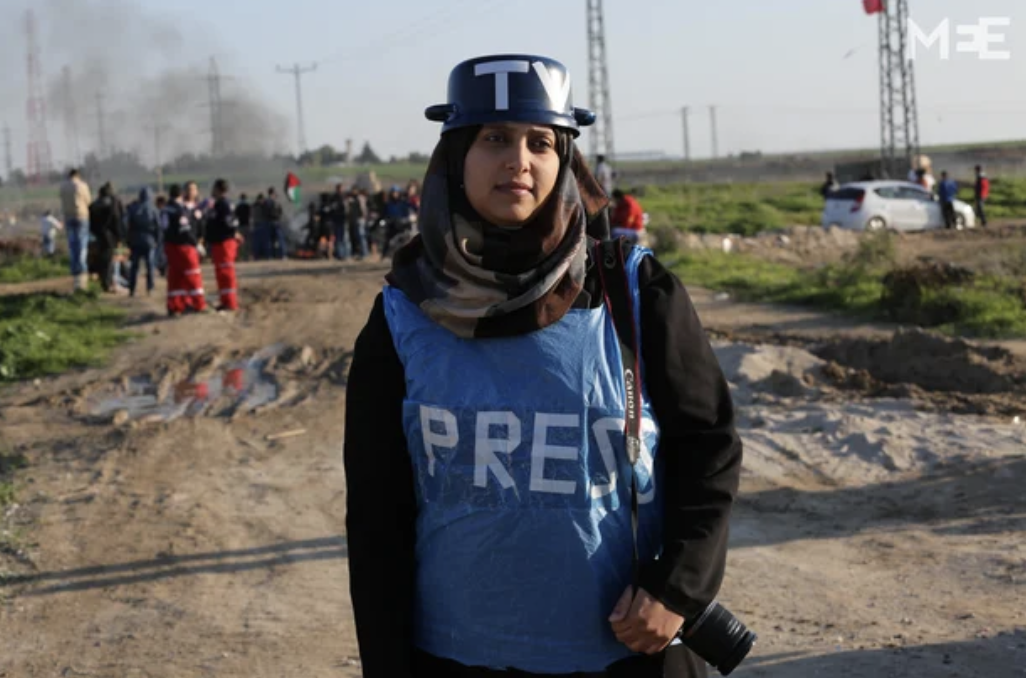Palestinian photographer Samar Abu Elouf wins 2025 World Press Photo of Year

Samar Abu Elouf is adding another prize to her mantle.
The freelance Palestinian photographer from Gaza has defied the odds to work on every major story in the enclave from 2010 until the end of 2023.
On Thursday, she received the 2025 World Press Photo of the Year Award for her photograph published by The New York Times of nine-year-old Mahmoud Ajjour, who lost both arms in an Israeli air strike in Gaza City in March 2024.
The phone was taken by Abu Elouf in June 2024, as she had found herself residing in the same apartment complex as Ajjour in Doha, Qatar, where the Palestinian boy was staying with his family while receiving medical treatment. Abu Elouf was able to leave Gaza in December 2023.
Ajjour is one of the lucky few to have been flown out for medical care, and Abu Elouf has been documenting many of their experiences as they journey toward healing.
New MEE newsletter: Jerusalem Dispatch
Sign up to get the latest insights and analysis on Israel-Palestine, alongside Turkey Unpacked and other MEE newsletters
Abu Elouf had already won the prestigious Polk Award in 2023 for - among others in a collection - what has become one of the most recognisable and defining images of Israel's war on Gaza, in which children sheltering at a school in Gaza look up in fear at the sky, hearing the bombs fall around them.
In 2024, Abu Elouf was the recipient of the Anja Niedringhaus Courage in Photojournalism Award from the International Women's Media Foundation for a series of 12 images commissioned by her primary employer, The New York Times, documenting the impact of war on Gaza's women and children.
Abu Elouf contributed several photographs to boost Middle East Eye's reporting in 2019, whether on the Israeli killings of children during non-violent protest, the salary cuts that stemmed from the longstanding Palestinian Authority-Hamas feud, or the agonising wait of a family for the return of their deceased loved one, still held by Israel.
'No one pays us any attention'
It wasn't always like this.
Speaking to MEE in 2016, Abu Elouf said embarking on the work she loved in Gaza was difficult and unsafe, and perhaps most of all, thankless.
"Unfortunately, instead of receiving support and recognition for the work we do, no one pays us any attention," she said.
"This is why I specifically want to deliver a message to all press freedom organisations that carry slogans of press protection, yet, on the ground, do nothing to protect us, that they need to start paying attention to the reality here."
The quote rings equally true today.
Officials in Gaza have counted more than 220 media workers who have been killed in Gaza since October 2023, making it the deadliest war for the profession in the last hundred years, according to the Costs of War project at Brown University.
In 2016, Abu Elouf was photographed for MEE, wearing her press helmet, which was made from a saucepan, and her press vest, made from plastic bags. She was unable to afford real protective gear at the time.
"We, as freelance journalists, have no protection whatsoever; no one is there to provide us with safety and protection measures and when we get injured, we are often blame ourselves," Abu Elouf told MEE.
It's a sentiment that remains true today, whether journalists are young freelancers or they're veteran journalists decked out in press gear and employed by some of the world's biggest news organisations.
middleeasteye.net